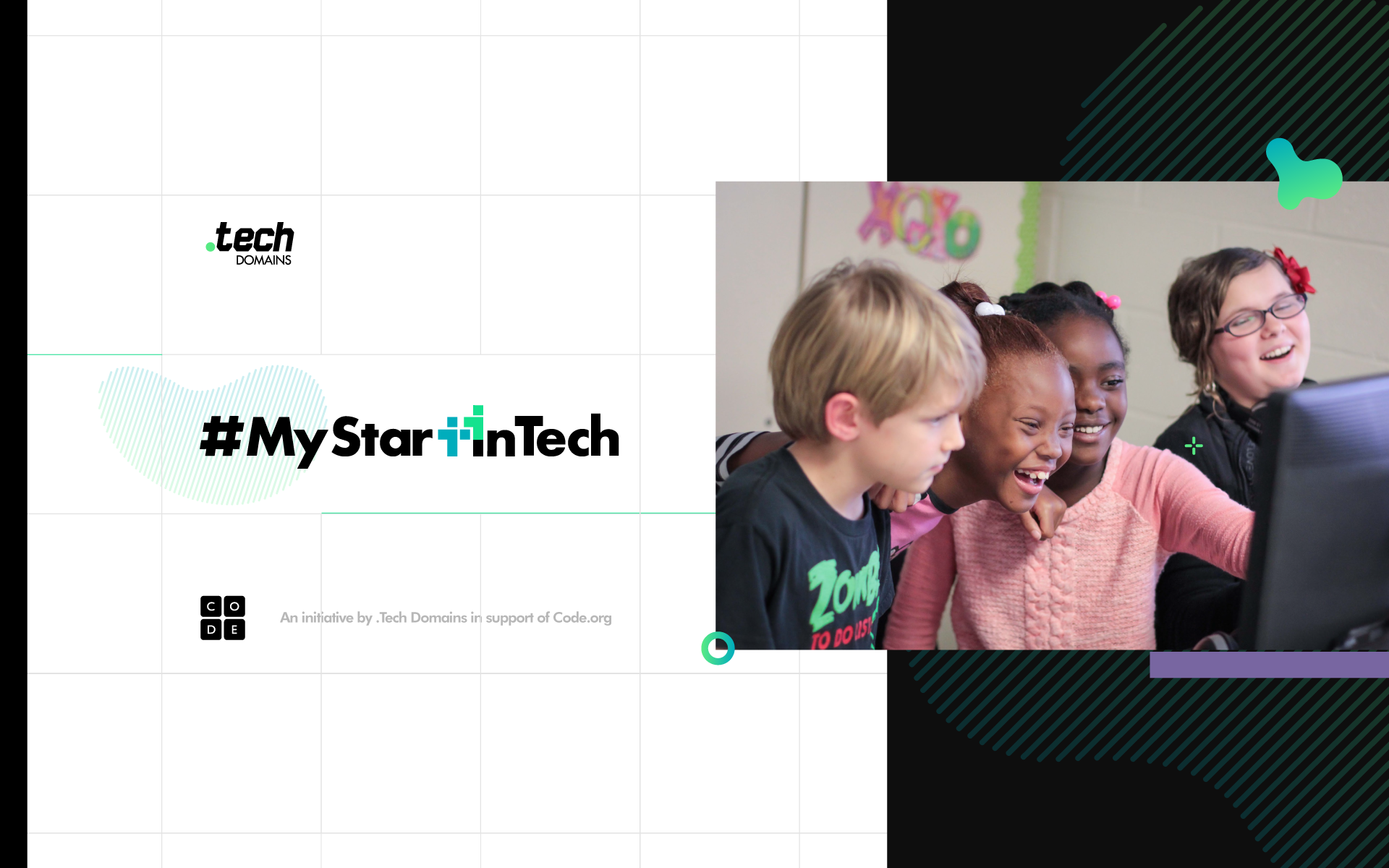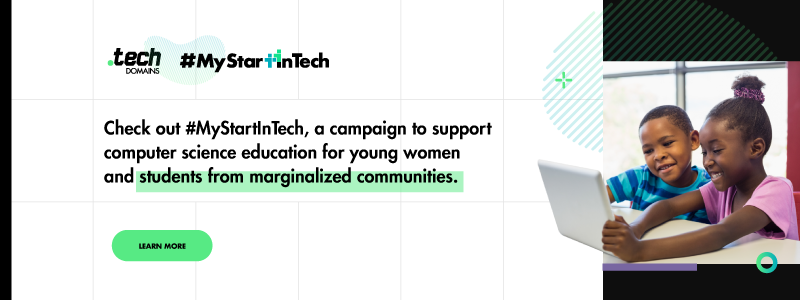The tech workforce in the US is not growing at an optimal pace. The number of schools offering computer science is not enough which is impacting the access of computer science to young women and students from marginalized communities.
The truth is that there are over 410,020 open computing jobs in the US but only 71,226 computer science students graduated into the tech workforce last year.
This is because only 47% of public high schools in the US offer computer science which deeply impacts its access to young women and students from marginalized communities.
To address this pressing issue, we have launched #MyStartInTech, a campaign dedicated to drawing attention to this cause and in turn, help widen access to computer science in schools.
As part of this campaign, we present the #MyStartInTech interview series where some of the esteemed tech entrepreneurs and professionals in the industry share details about their journey in tech. With this, we hope to draw attention to the infinite opportunities that will lay open if young women and students are given the opportunity to study computer science.
In this interview, Guim Gonzalez, Founder & CEO, Xatet Technologies, talks about how he got his start in the tech world.
Guim has been a freelance developer for the last 5 years and has worked with cloud products from Google and Amazon, creating systems in both web and mobile applications. His company Xatet Technologies is dedicated to the development of mobile applications with the aim of generating a positive impact on society.

Let’s find out what he has to say!
When was your first interaction with Computer Science?
My first interaction with computers was when my father installed an old desktop computer in my room. I remember spending hours every day surfing the Internet (it was big, but not as big as it is now).
Unlike my few friends who had a computer and only used it to play games, I preferred to discuss with strangers in forums, read the whole Wikipedia or start doing little shell scripts.
What nudged you into taking up a career in technology?
For as long as I can remember I have been with computers all my life. So I guess it’s in my blood to work with technology. But I do remember a tipping point that marked a before and after in my passion for computers – the day I found the book “Ready Player One” in my father’s old Kindl.
I had never read a book before, I didn’t like reading books, I only read documents on the Internet. But I finished that book in two days, and that’s when I said, “I want to be a computer scientist when I grow up!”.
What are your earliest memories of using a computer in school?
It was in high school. We were given a small laptop for each student. I remember that it completely changed the subjects of technology, technical drawing, and mathematics, where we could now instantly see the results of our problems with 3D figures. Even the more theoretical subjects became more fun because we could do online tests and see the mistakes that others were making so that we wouldn’t make them ourselves.
What is the importance of technology to you now and how does it impact your day-to-day life?
Right now technology feeds me. I work with technology, although I’ve always liked to do it from a social or inclusive point of view.
Technology is the most powerful tool ever created by human beings. More than the wheel, more than fire, more than money (now we have created virtual money with the Blockchain).
Because technology allows us to change any ecosystem, I personally believe it’s our duty as citizens, to make an improvement not only in businesses but in societies.
How important is it to increase access to computer science and technology to underrepresented communities and young women today?
In the future, most of today’s jobs will disappear. And most of those that remain will be technological.
Not only that but as we automate jobs, the jobs that remain will be constantly disrupted. That’s why it’s important not only to educate young people from a technological point of view but also in a scenario of constant change, of high uncertainty. Because most children will probably end up working in things that don’t even exist now.
And of course, we have to forget the stereotypes that young women are not a technological career profile. Any initiative that promotes these changes is necessary and welcome within the technology community.
Why do you think access to computer literacy in school is important?
I believe it is essential to introduce computers in schools at an early age to mitigate technological disruption, which is a great danger to future societies.
What do you think about .Tech Domains taking up this cause?
I think it is a must for companies and educational institutions to take this cause seriously.
Now that I know .Tech domains is involved in this social and technological change, I feel better, and I will continue working with companies like this one that bet on a better future.
Technological disruption is here, and it is not as easy to see as famine, wars, or climate change. But like all these other challenges, we need to act as soon as possible.


